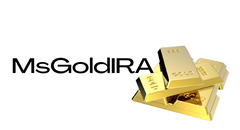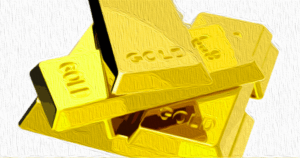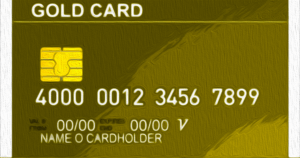Introduction
Significant changes are occurring in the realm of illicit actors utilizing cryptocurrencies. According to a report published by TRM Labs in 2023, Bitcoin is no longer the preferred asset for criminals. This shift in cryptocurrency usage has profound implications for the cryptocurrency ecosystem and requires a reevaluation of policy approaches.
The Changing Landscape
The TRM Labs report reveals a substantial decline in Bitcoin's share of illicit crypto volume. In 2016, Bitcoin accounted for 97% of illicit activity, but by 2022, its share had plummeted to just 19%. Ethereum and Binance Smart Chain emerged as dominant players, with 68% and 19% of illicit crypto volume, respectively. Furthermore, the report highlights the replacement of Bitcoin by assets on the TRON blockchain for terrorist financing, reaching a staggering 92% by 2022.
Implications of the Shift
This shift challenges the prevailing notion that Bitcoin is synonymous with criminal activity. Bitcoin has historically been a popular choice due to its network effect, market dominance, and liquidity. However, the separation of equilibria among illicit actors indicates a changing preference for alternative cryptocurrencies.
Policy Considerations
This shift in illicit finance provides valuable insights for policymakers. It emphasizes the importance of closely monitoring specific assets and blockchains favored by criminals and taking appropriate actions to mitigate risks. Policymakers should also adopt a more nuanced perspective on digital assets, moving away from generic views and considering the diverse ways in which cryptocurrencies are utilized for criminal purposes.
For instance, in the context of cryptoassets in terror financing, it is crucial to acknowledge that Hamas has ceased accepting Bitcoin donations to protect its sponsors from exposure. This demonstrates the complexity and evolving nature of financial crime, which adapts to exploit the path of least resistance.
Game Theory Perspectives
Adopting a game-theoretic lens allows for a holistic understanding of the cryptocurrency space, involving product developers, regulators, and both good and bad actors. The interplay of independent actions and perspectives generates diverse scenarios, making it challenging for any single party to control outcomes.
A game-theoretic approach to combating illicit finance involves delving into the criminal mindset to predict and prepare for their next moves. Unlike traditional finance regulations that follow a reactive approach, the rapidly evolving digital asset space necessitates predictive systems that forecast future patterns of illicit fund flows. This proactive approach minimizes response time to emerging threats.
Counter-crime Initiatives
The changing usage of Bitcoin offers valuable insights for counter-crime professionals. Crime syndicates that still rely heavily on Bitcoin may indicate a lack of adaptability and agility in leadership. Evaluating their position on an "agility spectrum" can provide actionable insights into their level of resourcefulness and technical expertise. Law enforcement agencies can then tailor their efforts to combat each crime ring accordingly.
Conclusion
The shift of financial crime away from Bitcoin emphasizes the need for nuanced and dynamic regulatory and policy frameworks for digital assets and blockchains. Applying broad strokes to the entire spectrum of cryptofinance in policy debates on criminal usage is not only ineffective but also potentially detrimental. As the landscape continues to evolve, policymakers must stay vigilant, adapt their approaches, and leverage predictive systems to effectively combat illicit activities in the cryptocurrency space.
This article is a guest post by Debanjan Chatterjee. The opinions expressed are entirely their own and do not necessarily reflect those of BTC Inc or Bitcoin Magazine.
Frequently Asked Questions
How do you withdraw from an IRA that holds precious metals?
If you have an account with a precious-metal IRA company like Goldco International Inc, you might consider withdrawing your funds. If you decide to sell your metals this way, they will be much more valuable than if they were inside the account.
This article will help you understand how to withdraw funds from an IRA that holds precious metals.
First, find out whether your precious metal IRA provider allows withdrawals. Some companies will allow withdrawals, while others won't.
Second, consider whether your sale of metals can allow you to take advantage tax-deferred profits. This benefit is offered by most IRA providers. However, some don't.
Third, check with your precious metal IRA provider to see if any fees are associated with taking these steps. You may have to pay an additional fee for the withdrawal.
Fourth, it is important to keep track of your precious-metal IRA investments for at most three years after you have sold them. For capital gains to be calculated, wait until January 1, each year. You will then need to file Form 8949 which contains instructions on how to calculate the amount of gain that you have realized.
In addition to filing Form 8949, you must also report the sale of your precious metals to the IRS. This step ensures that you pay taxes on all profits earned from your sales.
Before selling precious metals, it is a good idea to consult an attorney or trusted accountant. They can help you avoid costly mistakes and ensure you comply with all regulations.
Are precious metal IRAs a wise investment?
The answer depends on how much you are willing to risk an IRA account losing value. They make sense if you have $10,000 in cash as long as you don't expect them to grow very quickly. These might not be the best options if you're looking to invest in assets that have the potential to rise in value (gold) and plan to save for retirement for many decades. These fees can reduce any gains.
Can I physically possess gold in my IRA account?
Many people want to know if gold can be physically owned in an IRA. This is a fair question because there isn't any legal way to do it.
You can still own gold in an IRA if you look at the law.
Problem is, most people don’t realize how much they can save by putting gold in an IRA and not keeping it in their home.
It's very easy to dispose of gold coins, but much harder to make an IRA. If you decide not to keep your golden in your home, you'll need to pay twice tax. You will pay taxes twice: once to the IRS and one for the state in which you live.
It is possible to lose your gold and pay twice as much tax. Why would you keep your gold in the house?
Some might argue that gold should be safe at home. It is important to store your gold somewhere safer in order to prevent theft.
If you're planning on visiting frequently, it is best to keep your gold safe at home. If you leave your gold unattended, thieves can easily steal it while you're out of town.
A better option is to store your gold in an insured vault. This will ensure that your gold is protected against fire, flood, earthquake and robbery.
Another advantage to storing your gold in a vault is that you won't have to worry about paying property tax. Instead, any gains that you make by selling your gold will be subject to income tax.
You may be interested in an IRA if you don't want to pay taxes on your gold. You don't pay income tax on the interest you earn with an IRA.
Capital gains tax doesn't apply to gold. That means you have the right to cash your investment at whatever time you choose.
And because IRAs fall under federal regulation, you won’t have any problems getting your gold transferred to another institution if you move.
The bottom line? You can own your gold in an IRA. Only thing stopping you from owning gold in an IRA is your fear of getting it stolen.
Are gold IRAs a good idea?
You should buy shares in companies that produce gold. You should buy shares in these companies to make money from investing in gold and other precious metals such as silver.
The downside to owning shares is that you can't directly control them.
Holding on to your stock for too many years can lead you to losing money. Stocks fall faster than their underlying assets (like gold) when they are declining. That means you could end up losing money instead of making it.
Second, waiting for the market to recover before selling your gold holdings could result in you missing out on potential profits. Therefore, you might need patience and wait for the market recovery before making any profit from your gold investments.
If you prefer to keep your investments apart from your finances, physical gold is still an option. An IRA in gold can diversify your portfolio and protect you against inflation.
Visit our website for more information on gold investing.
Should You Open a Precious Metal IRA?
The answer depends on whether you have an investment goal and how much risk tolerance you are willing to take.
An account should be opened if you are planning to use the money in retirement.
Precious metals will appreciate over time. You also get diversification benefits.
The prices of silver and gold tend to be linked. This makes them better choices when you want to invest in both assets.
If you're not planning on using your money for retirement or don't want to take any risks, you probably shouldn't invest in precious metal IRAs.
Is it a good idea to have an IRA that holds gold and silver?
This is a great option if you're looking for an easy way of investing in both silver and gold simultaneously. However, there are many other options available as well. Contact us anytime if you have questions about these types investment options. We're always happy to help!
Statistics
- Silver must be 99.9% pure • (forbes.com)
- You can only purchase gold bars of at least 99.5% purity. (forbes.com)
- Same tax rules as traditional IRA SEP IRA contributions in 2022 are limited to 25% of compensation or $66,000, whichever is less Before setting up a Silver IRA, understand the fees and IRS restrictions. (sltrib.com)
- Depending on your financial situation, most experts recommend you invest no more than 5% to 10% of your retirement funds in precious metals. (forbes.com)
External Links
kitco.com
en.wikipedia.org
investopedia.com
wsj.com
How To
How to Decide if a Gold IRA Is Right for You
Individual Retirement Account (IRA) is the most popular type. IRAs may be obtained from financial planners or banks as well as mutual funds and banks. The IRS allows individuals up to $5,000 in annual contributions without tax consequences. This amount is available to all IRAs, regardless of age. There are limits to how much money you may put into certain IRAs. For example, you cannot contribute to a Roth IRA unless you're at least 59 1/2 years old. If you're under 50, you must wait until you reach age 70 1/2 before making contributions. Additional, employees who work for their employer might be eligible to receive matching contributions.
There are two main types: Roth and traditional IRAs. A traditional IRA lets you invest in stocks, bonds, real estate, and other investments, while a Roth IRA lets you invest only in after-tax dollars. Roth IRA contributions are not subject to tax when they are made, but Roth IRA withdrawals are. Some people prefer to combine these two accounts. Each type of IRA comes with its own pros and cons. There are pros and cons to each type of IRA. Here are three things to keep in mind:
Traditional IRA Pros
- Contribution options vary by company
- Employer match possible
- More than $5,000 in savings per person
- Tax-deferred growth up to withdrawal
- May have restrictions based on income level
- The maximum annual contribution limit is $5.500 (or $6.500 if married filing jointly).
- Minimum investment: $1,000
- You must start receiving mandatory distributions after age 70 1/2
- You must be at the least five years of age to open an IRA
- Transfer assets between IRAs is not possible
Roth IRA pros
- No taxes owed when contributing
- Earnings grow without paying taxes
- No minimum distribution required
- Only stocks, bonds, mutual funds are available as investment options.
- There is no maximum allowed contribution
- There are no limitations on the ability to transfer assets between IRAs
- To open an IRA, you must be 55 years old or older
If you are thinking about opening an IRA, it is important to be aware that not all companies offer exactly the same IRAs. Some companies offer the option of a Roth IRA, while others provide a choice between a Roth IRA and a traditional IRA. Others will give you the option to combine them. It's also worth noting that different types of IRAs have different requirements. Roth IRAs have no minimum investment requirements, while traditional IRAs require a minimum $1,000 investment.
The bottom line
The key factor in choosing an IRA account is whether you wish to pay taxes now, or later. A traditional IRA is a good choice if you expect to retire within ten. If you are not able to retire within ten years, a Roth IRA may work better for you. In either case, it's a smart idea to speak with a professional about your retirement plans. It's important to have someone who is knowledgeable about the market and can suggest the best options for you.
—————————————————————————————————————————————————————————————-
By: Debanjan Chatterjee
Title: The Shift of Illicit Actors Away from Bitcoin: Implications and Policy Considerations
Sourced From: bitcoinmagazine.com/legal/game-theory-of-financial-crime-policy-takeaways-from-bitcoin
Published Date: Mon, 29 Jan 2024 14:32:01 GMT













